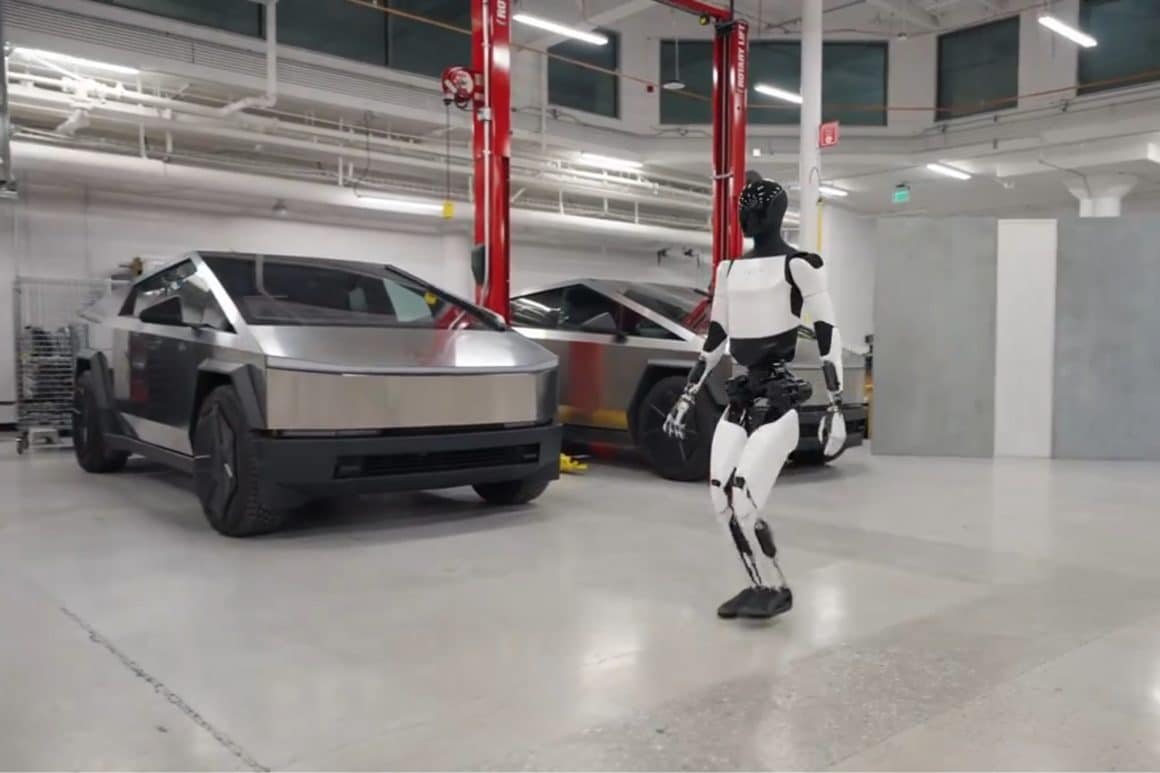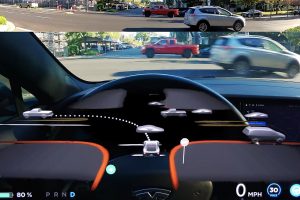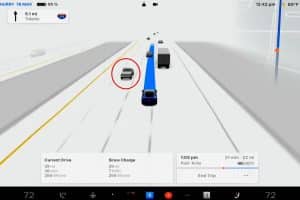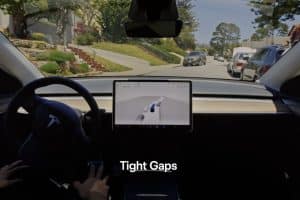- 🤝 Tesla confirmed that it is currently in talks with a major automaker for a potential licensing deal for its Full Self-Driving (FSD) system.
- 🚗 Elon Musk stated that it is becoming increasingly evident that a vision-based approach is the right path to autonomy, and adopting FSD should not be complicated for other automakers.
- 🔮 Musk believes that all cars will need to be “smart cars” with autonomous driving capabilities in the future, making FSD licensing not optional for automakers.
- ⌛ While the idea of FSD licensing is exciting, the actual rollout of FSD in a non-Tesla vehicle is likely still years away due to the long product cycles of veteran automakers.
- 💬 Tesla’s Chief Financial Officer, Vaibhav Taneja, acknowledged that even if a licensing deal is secured, it could take around three years for an eager automaker to incorporate FSD into their vehicles.
- 📈 Despite the potential challenges, the prospect of FSD licensing further solidifies Tesla’s position as a leader in autonomous driving technology.
In the ever-evolving landscape of autonomous driving technology, Tesla has firmly cemented its position as a trailblazer, pushing the boundaries of what is possible with its cutting-edge Full Self-Driving (FSD) system. Now, in a move that could potentially reshape the entire automotive industry, Tesla has confirmed that it is actively engaged in discussions with a major automaker for a potential FSD licensing deal.
Democratizing Autonomous Driving
The prospect of Tesla’s FSD system finding its way into non-Tesla vehicles represents a significant step toward democratizing autonomous driving capabilities. By licensing its proprietary technology to other automakers, Tesla is poised to accelerate the adoption of this game-changing technology, ushering in a new era of safer, more efficient, and more convenient transportation for all.
The Vision-Based Approach: A Paradigm Shift
At the heart of Tesla’s FSD system lies a groundbreaking vision-based approach to autonomous driving. Eschewing traditional sensor technologies in favor of an intricate network of cameras and advanced artificial intelligence algorithms, Tesla has demonstrated an unwavering belief in the scalability and adaptability of this vision-centric strategy.
Elon Musk, Tesla’s visionary CEO, has repeatedly emphasized that this vision-based approach is the right path to true autonomy. According to Musk, adopting FSD should not be a complicated endeavor for other automakers, as it primarily involves integrating the same cameras and inference computer used by Tesla, coupled with licensing the company’s cutting-edge software.
The Inevitability of “Smart Cars”
One of the key drivers behind Tesla’s pursuit of FSD licensing is Musk’s firm conviction that autonomous driving capabilities will soon become a necessity rather than a luxury in the automotive industry. As he eloquently stated, “Once it becomes obvious that if you don’t have this (FSD) in a car, nobody wants your car. It’s a smart car… The people don’t understand all cars will need to be smart cars, or you will not sell, or nobody would buy it.”
This bold assertion underscores Tesla’s forward-thinking approach and its commitment to staying ahead of the curve in an industry that is rapidly evolving. By positioning FSD as an essential component of future vehicles, Tesla is effectively positioning itself as a critical partner for automakers seeking to remain relevant and competitive in the years to come.
Overcoming the Product Cycle Hurdle
While the prospect of FSD licensing is undoubtedly exciting, it is important to recognize the potential challenges that lie ahead. As acknowledged by Tesla’s Chief Financial Officer, Vaibhav Taneja, veteran automakers often operate on extended product cycles, which could potentially delay the integration of FSD into non-Tesla vehicles.
Taneja candidly stated, “In the conversations which we’ve had with some of these OEMs, I just want to also point out that they take a lot of time in their product life cycle. They’re talking about years before they will put it in their product. We might have a licensing deal earlier than that, but it takes a while.”
However, this temporal hurdle should not be perceived as a deterrent but rather as a testament to Tesla’s forward-thinking approach. By securing licensing deals today, Tesla is positioning itself at the forefront of the autonomous driving revolution, ensuring that its technology is ready and available when the automotive industry inevitably embraces the era of “smart cars.”
Tesla’s Continued Dominance in Autonomous Driving
Despite the potential challenges and timelines involved, the mere prospect of FSD licensing solidifies Tesla’s position as a leader in autonomous driving technology. By offering its cutting-edge system to other automakers, Tesla is not only democratizing access to this revolutionary technology but also demonstrating its confidence in the superiority of its vision-based approach.
As the world eagerly awaits the widespread adoption of autonomous driving capabilities, Tesla’s FSD licensing efforts represent a powerful catalyst for change. By empowering other automakers with its proprietary technology, Tesla is paving the way for a future where autonomous vehicles are the norm, revolutionizing transportation and ushering in a new era of safety, efficiency, and convenience for all.





